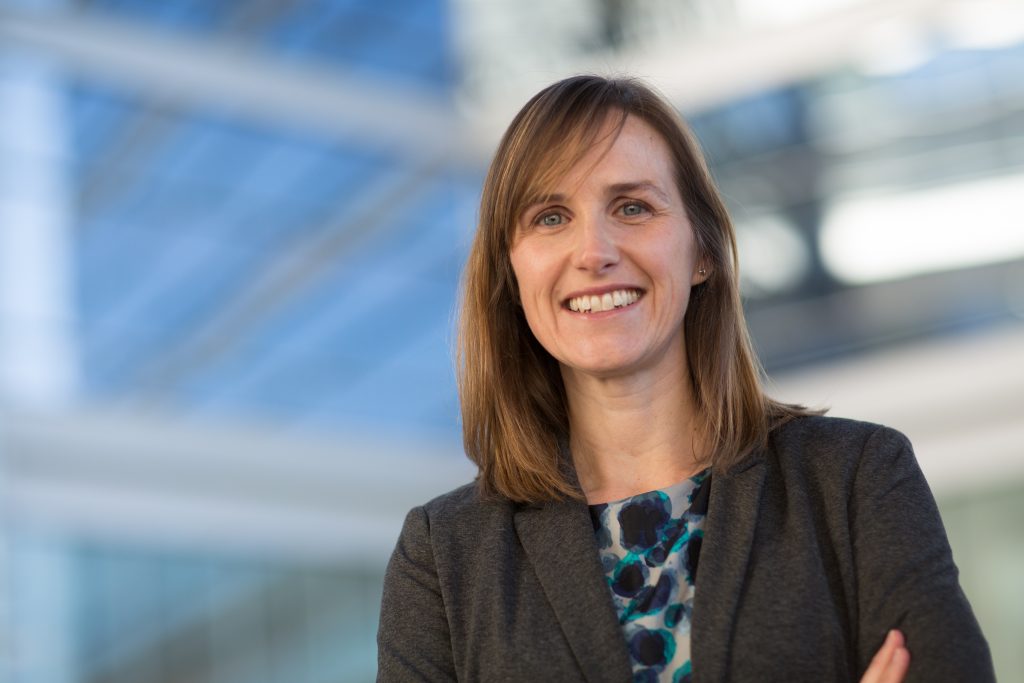A grant from Stand Up To Cancer will establish sustainable infrastructure to improve screening, diagnosis and treatment of lung cancer in the Black community.
Virginia Commonwealth University Massey Cancer Center, Medical University of South Carolina Hollings Cancer Center and University of North Carolina Lineberger Comprehensive Cancer Center secured a four-year, $3 million grant from Stand Up To Cancer® (SU2C) that will establish the SU2C Lung Cancer Health Equity Research Team and build on the long-standing community outreach and engagement efforts of these institutions to develop culturally-sensitive, community-informed interventions aimed at reducing lung cancer disparities.
This grant is made possible by the support of Bristol Myers Squibb and is a part of SU2C’s Health Equity Initiative, which was announced in 2020 and focuses on increasing diversity in cancer clinical trials, initiating advocacy group collaborations and awareness campaigns, and funding research aimed at improving cancer outcomes and screening rates in medically underserved communities.

Black Americans are disproportionately impacted by social determinants of health, which can increase their risk for smoking and limit their access to lung cancer screening and care.
This grant will establish the Southeastern Consortium for Lung Cancer Health Equity to address these deeply ingrained disparities that contribute to a higher incidence of lung cancer in Black communities across Virginia and the Carolinas, which lie in the heart of America’s tobacco-producing region and are among the states with the highest concentration of Black residents.
“For this project, we will work with our partners to set up a sustainable research and outreach infrastructure in Virginia, North Carolina and South Carolina, to ensure that our communities continue to reap the benefits of these efforts for years to come, not just for the duration of this particular grant,” said team leader Robert Winn, MD, director and Lipman Chair in Oncology at VCU Massey, senior associate dean for cancer innovation and a professor of pulmonary disease and critical care medicine at the VCU School of Medicine.
As part of this project, each of the three centers will partner with their local federally-qualified health centers (FQHCs) – community clinics that receive special funding from the federal government to provide primary care in underserved areas. Hollings will partner with the Fetter Health Care Network, Massey will partner with the Capital Area Health Network, Vernon Harris FQHC in Richmond, and Lineberger will partner with Kintegra FQHC system.
Community navigators within the FQHCs and nurse and financial navigators within the cancer centers will guide patients through lung cancer screening by providing education and support. These teams of navigators aim to remove the variety of barriers that underserved patients face.

“Lung cancer screening has the potential to reduce lung cancer mortality and close the disparities gap, yet initial reports indicate low uptake of screening,” said Louise Henderson, PhD, the team’s principal investigator and program leader of cancer epidemiology at UNC Lineberger. “Through this team science grant, we will incorporate the cells-to-society approach in our work with community partners and patient advocates to test multilevel interventions aimed at increasing lung cancer screening.”
In addition to Henderson, the other UNC Lineberger team members are Alison Brenner, PhD, Marjory Charlot, MD, MPH, MSc, Lindsay Lane, MPH, Jason Long , MD, Dan Reuland, MD, MPH, M. Patricia Rivera, Stephanie Wheeler, PhD, MPH, MD, and Tomma Hargraves, patient lay navigator in the lung cancer program.
The second part of the project will involve pooling patient sample repositories across the three cancer centers to create the largest collection of curated clinical data and biospecimens from Black Americans at risk for or diagnosed with lung cancer.
Existing biobanks are sorely lacking on racial diversity, which in turn hampers clinicians’ ability to take their patients’ race into account when determining the best prevention or treatment plan.
“We have designed a project that is truly translational by combining basic science and community outreach approaches,” said Marvella Ford, PhD, team co-leader and associate director of cancer disparities at MUSC Hollings Cancer Center. “I think it is important for states that are facing similar disparities to unite and come together to develop this consortium that gives us more leverage than we would have individually. We’re all facing the same battle, but we can fight it much better together.”
About VCU Massey Cancer Center
VCU Massey Cancer Center is working toward a future without cancer – one discovery, one successful therapy and one life saved at a time. Among the top 4 percent of cancer centers in the country to be designated by the National Cancer Institute to lead and shape America’s cancer research efforts, Massey is dedicated to saving and improving lives by discovering, developing, delivering and teaching effective means to prevent, detect and treat cancer and to making those advancements equally available to all. Massey is leading the nation in establishing a 21st-century model of equity for cancer research and care, in which the community is informing and partnering with Massey on its research to best address the cancer burden and disparities of those the cancer center serves. Massey conducts cancer research spanning basic, translational, clinical and population sciences; offers state-of-the-art cancer therapies and clinical trials, including a network that brings trials to communities statewide; provides oncology education, teaching and training; and promotes cancer prevention. At Massey, subspecialized oncology experts collaborate in multidisciplinary teams to provide award-winning, comprehensive cancer care at multiple sites throughout Virginia. Visit Massey online at masseycancercenter.org or call 877-4-MASSEY for more information.
About MUSC Hollings Cancer Center
MUSC Hollings Cancer Center is a National Cancer Institute-designated cancer center and the largest academic-based cancer research program in South Carolina. The cancer center comprises more than 100 faculty cancer scientists and 20 academic departments. It has an annual research funding portfolio of more than $44 million and a dedication to reducing the cancer burden in South Carolina. Hollings offers state-of-the-art diagnostic capabilities, therapies and surgical techniques within multidisciplinary clinics that include surgeons, medical oncologists, radiation therapists, radiologists, pathologists, psychologists and other specialists equipped for the full range of cancer care, including more than 200 clinical trials. For more information, visit hollingscancercenter.musc.edu.
About UNC Lineberger Comprehensive Cancer Center
Established in 1975, the UNC Lineberger Comprehensive Cancer Center is a cancer research and treatment center at the University of North Carolina at Chapel Hill. It is one of only 52 National Cancer Institute-designated comprehensive cancer centers and the only public comprehensive cancer center serving the state and people of North Carolina. With research that spans the spectrum from the laboratory to the bedside to the community, UNC Lineberger’s more than 400 members based at more than 40 departments across campus work to understand the causes of cancer at the genetic and environmental levels, to conduct groundbreaking laboratory research, and to translate findings into pioneering and innovative clinical trials and, ultimately, more effective cancer treatments. For more information, visit unclineberger.org.
